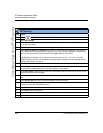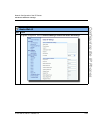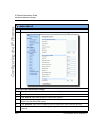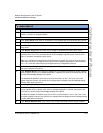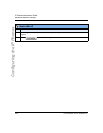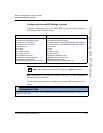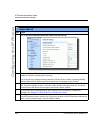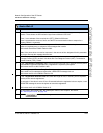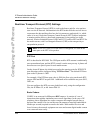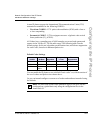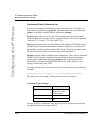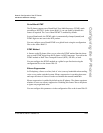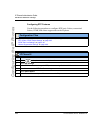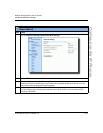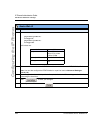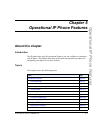
Advanced Network Settings
4-56 41-001160-00, Rev 01 Release 2.0
IP Phone Administrator Guide
Configuring the IP Phones
Real-time Transport Protocol (RTP) Settings
Real-time Transport Protocol (RTP) is used as the bearer path for voice packets
sent over the IP network. Information in the RTP header tells the receiver how to
reconstruct the data and describes how the bit streams are packetized (i.e. which
codec is in use). Real-time Transport Control Protocol (RTCP) allows endpoints
to monitor packet delivery, detect and compensate for any packet loss in the
network. Session Initiation Protocol (SIP) and H.323 both use RTP and RTCP for
the media stream, with User Datagram Protocol (UDP) as the transport layer
encapsulation protocol.
RTP Port
RTP is described in RFC1889. The UDP port used for RTP streams is traditionally
an even-numbered port, and the RTCP control is on the next port up. A phone call
therefore uses one pair of ports for each media stream.
On the Aastra IP phone, the initial port used as the starting point for RTP/RTCP
port allocation can be configured using "RTP Port Base". The default RTP base
port on the IP phones is 3000.
For example, if the RTP base port value is 5000, the first voice patch sends RTP
on port 5000 and RTCP on port 5001. Additional calls would then use ports 5002,
5003, etc.
You can configure the RTP port on a global-basis only, using the configuration
files, the IP Phone UI, or the Aastra Web UI.
Basic Codecs
CODEC is an acronym for COmpress-DECompress. It consists of a set of
instructions that together implement one or more algorithms. In the case of IP
telephony, these algorithms are used to compress the sampled speech data, to
decrease the content's file size and bit-rate (the amount of network bandwidth in
kilobits per second) required to transfer the audio. With smaller file sizes and
lower bit rates, the network equipment can store and stream digital media content
over a network more easily.
Note: If RFC2833 relay of DTMF tones is configured, it is sent on the
same port as the RTP voice packets.



